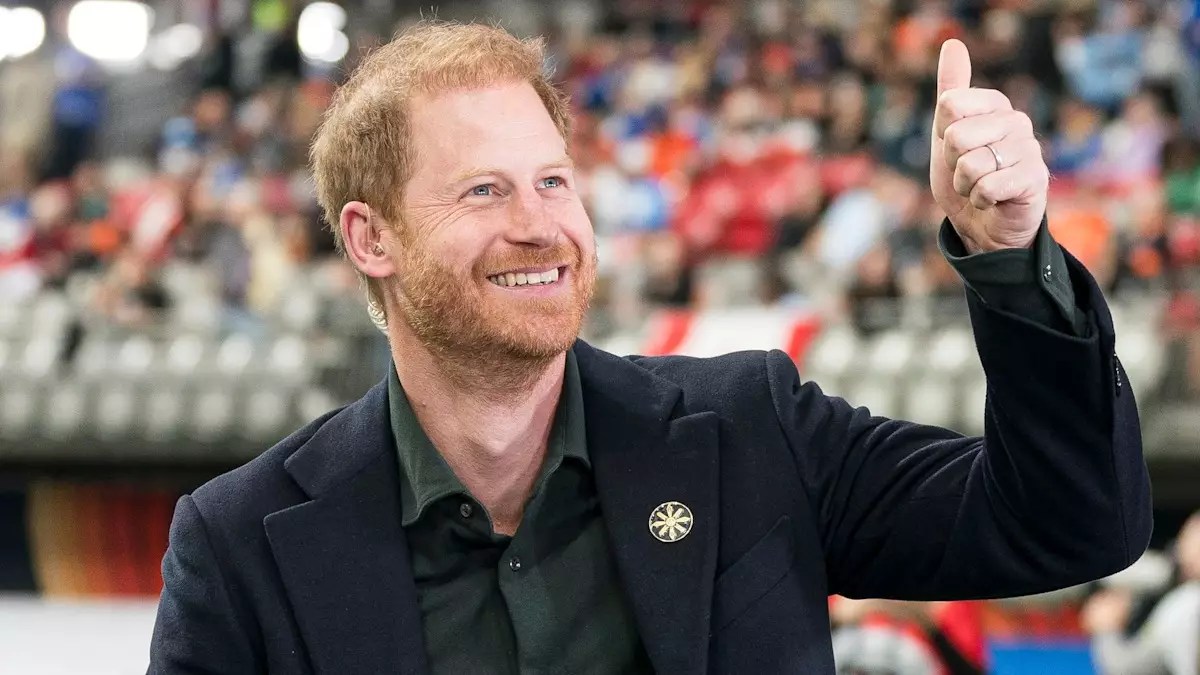Prince Harry’s transition from the British royal family to a new life in Montecito, California has been startlingly public—and not just because of the circumstances surrounding his departure. Over the past four years, as Harry has embraced a more relaxed lifestyle, the nuances of his speech have also undergone profound changes. The Duke of Sussex, now 40, seems to be adopting American dialects and idiomatic expressions, masking the distinctive punctuation that once characterized his Etonian roots. This shift has piqued the interest of fans and linguists alike, particularly during his recent appearances that showcase this evolving communication style.
A light-hearted video featuring Harry at New York’s East Side Ink tattoo parlor offers an intriguing glimpse into this change. Joined by musician Jelly Roll, his dialogue veered towards distinctly American vernacular. Comments flooded in from viewers, reflecting on the Duke’s evolving accent and its apparent divergence from the regal tones of his childhood. Some observers noted the dilution of his British accent, while others remarked on an unmistakable American influence that has crept into his everyday language.
The manner in which Harry communicates serves as an accessible window into his cultural assimilation. Phrases like “screw it, let’s do it” and the casual reference to the tattoo artist as “dude” highlight his comfort in using contemporary American slang. Even small modifications in pronunciation, such as his amusing interpretation of “a**” as “a**,” hint at an interplay of influences that extend beyond mere geographic location.
Communication experts studying this phenomenon have indicated that such linguistic shifts often arise from immersion in a new culture. Anthony Shuster, a communication coach, emphasized the stark contrast between how Harry speaks now versus the polished, articulated style of his royal upbringing. He suggests that this relaxation of speech patterns signals not just a change in how Harry communicates but an overall adaptation to a less formal, more casual lifestyle.
Equally compelling is the role Meghan Markle has played in this transformation. As a California native, Meghan embodies American culture, and her influence has undoubtedly affected Harry’s speech and mannerisms. Linguistic studies suggest that close relationships can lead to the adoption of new speech patterns, as individuals meld their communication styles. Tony Thorne, a language expert, reinforced this notion by explaining that being in consistent proximity to someone with a different accent fosters a natural blending of speech habits.
Harry himself has expressed enthusiasm for his Californian existence, claiming he “loves every single day” in the U.S. He detailed how his children, Archie and Lilibet, are growing in a bilingual environment, rich with elements from both British and American cultures. This environment perfectly encapsulates the merger of two worlds, serving as a backdrop to Harry’s evolving identity.
One intriguing angle that has been explored is the potential motivation behind Prince Harry’s accent shift. Experts suggest that in adapting his language to include American phrases, he is not just conforming to his surroundings but actively working to connect with a new audience. This notion sparks a conversation about authenticity and relatability, particularly considering Harry’s foray into American media with projects like his podcast. Linguistically acclimatizing could be seen as a strategic move to resonate more deeply with listeners who now form a significant part of his public persona.
Interestingly, this evolution in Harry’s speech is not an isolated incident. In 2021, his use of American phrases during podcast recordings further emphasized this trend. Words like “awesome” and “you guys” display a willingness to embrace a cultural lexicon that extends beyond his heritage, underlining a growing kinship with the American demographic.
Critics of Harry’s linguistic evolution have pointed to a nostalgia for the articulate, traditional royal voice he once embodied. Yet, this metamorphosis might be less about losing one’s identity and more about the complexities of navigating new societal landscapes. As Shuster compared Harry’s current speech to a clip from 2004 during his gap year, it’s evident that life experiences shape communication styles, often as profoundly as geographical changes.
As Prince Harry continues his life in California, his evolving accent serves as a metaphor for his personal journey—a pathway that melds royal history with an American present, forging a future that celebrates both identities. Whether Harry’s language will continue to reflect this unique blend remains to be seen, but it provides a fascinating lens through which to analyze the intersections of culture, identity, and communication.







Leave a Reply